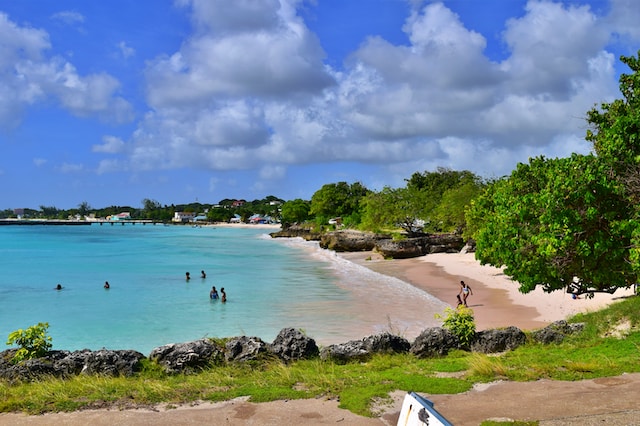Barbados is the largest English-speaking nation in the Caribbean, measuring 21 miles long by 14 miles wide, and home to about 285,000 people. Barbados has a long history of democracy, and it is deeply committed to the rule of law, as well as to political and economic liberties. The primary goal of Barbados’ monetary policy is to maintain the fixed exchange rate with the US dollar, which has stayed at two BDS to USD since 1975. The country continues to have one of the highest per capita incomes in the Eastern Caribbean, and the nation has a high score on the UNDP’s Human Development Index.

Tourism and financial services are the two primary pillars of Barbados’ services-based economy. Barbados’ economy is still heavily dependent on imports, and the US continues to have a trade surplus with Barbados. Due in large part to the difficulties brought on by the Covid-19 outbreak and the shutdown of the tourism industry in 2020, exports decreased by 13% to USD$504.7 million. Late in 2018, Barbados and the International Monetary Fund (IMF) agreed to a stand-by arrangement. To lessen the effects of the Covid-19 epidemic, Barbados’ IMF agreement has since been expanded under the Extended Fund Facility in 2020 and 2021.
Market challenges
The slow reopening of the tourism industry, which, according to the Central Bank of Barbados (CBB), accounts for 40% of the island’s economic activity, has had a significant negative impact on Barbados’ economy. As a result of the economy’s instability and increased unemployment, COVID-19 has less money to spend. The productive sectors have been severely hampered, and long-term impacts are anticipated. Barbados’ high-income status according to the World Bank precludes it from receiving some formal development aid. Barbados’ ongoing struggle with a high debt-to-GDP ratio has been made worse by COVID-19’s effects. The Caribbean Development Bank finances some substantial infrastructure projects (CDB). Since the US is not a member of the CDB, US companies are generally not eligible for these tenders, with some exceptions.
Although Barbados has reduced its tariffs and streamlined its tariff system to comply with its World Trade Organization (WTO) responsibilities, tariffs nevertheless remain high. For some foreign companies and tourism businesses, the government offers duty-free privileges. Food import taxes, however, continue to be expensive, particularly for franchise operations. The economy of Barbados is tiny, and because of local interests, new businesses that would compete with established local businesses, particularly in the retail and restaurant industries, could de facto lose their licenses. Burger King, KFC, Little Caesar’s Pizza, Payless Shoe Source, Starbucks, and Subway have been granted operating permits by the government, although importers of American ice cream and chicken have not. Market opportunities
Barbados participates in the CARICOM Single Market and Economy as a member of the Caribbean Community (CARICOM) (CSME). Once fully implemented, the CSME will lessen or eliminate constraints on the flow of money, labor, products, and services across the region. Over one-third of Barbados’ food imports, or 90%, are from the United States. Additionally, Barbados has advantageous bilateral tax, trade, and investment agreements with nations like China. Where domestic and foreign tax rates converge, Barbados’ tax system still complies.
Opportunities exist in the services sector, particularly in the fields of international finance, information technology, international education, health, and culture. Agriculture, agro-processing, and energy, particularly renewable energy technology, all present investment prospects. The government is pressing ahead with plans to expand its tourism infrastructure by bringing in new branded hotels. Smaller neighborhood hotels keep updating their current buildings. The government has enacted laws to modernize the current zoning and land use regulations to expand the potential for economic growth. Trade possibilities will still exist for American exporters of consumer goods, specialty agricultural products, and supplies for hotels and restaurants.







